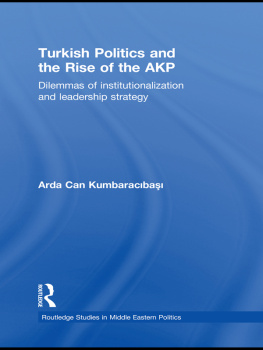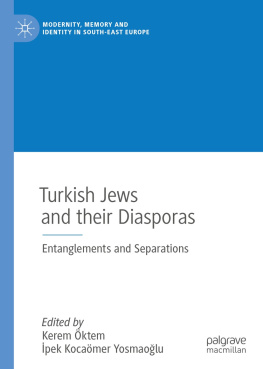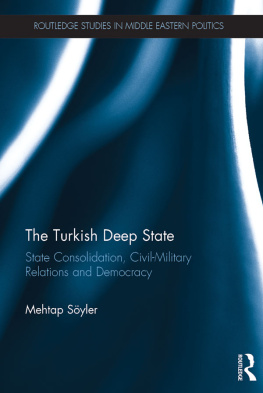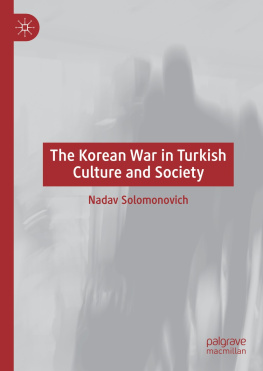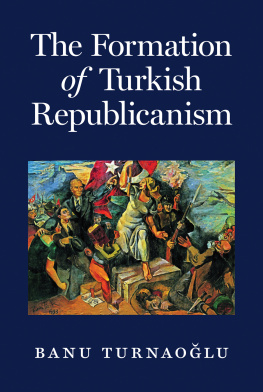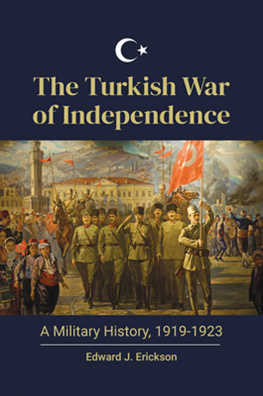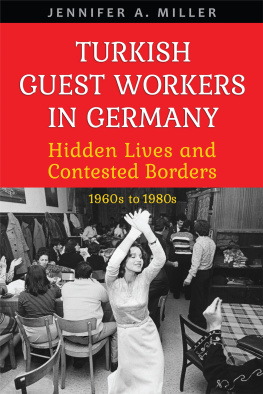Banu enay is a Macarthur Research Fellow of Anthropology at the University of Melbourne and holds a PhD in Anthropology from Macquarie University, Sydney.

Published in 2013 by I.B.Tauris & Co Ltd
6 Salem Road, London W2 4BU
175 Fifth Avenue, New York NY 10010
www.ibtauris.com
Distributed in the United States and Canada
Exclusively by Palgrave Macmillan
175 Fifth Avenue, New York NY 10010
Copyright 2013 Banu enay
The right of Banu enay to be identified as the author of this work has been asserted by the author in accordance with the Copyright, Designs and Patent Act 1988.
All rights reserved. Except for brief quotations in a review, this book, or any part thereof, may not be reproduced, stored in or introduced into a retrieval system, or transmitted, in any form or by any means, electronic, mechanical, photocopying, recording or otherwise, without the prior written permission of the publisher.
International Library of Ethnicity, Identity and Culture 3
ISBN 978 1 78076 087 2
A full CIP record for this book is available from the British Library
A full CIP record for this book is available from the Library of Congress
Library of Congress catalog card: available
Typeset by Newgen Publishers, Chennai
To Christopher
CONTENTS
LIST OF ILLUSTRATIONS
Figures
Atatrk images on the Bondi Pavilion Wall
Atatrk images on the Bondi Pavilion Wall
First Turkish assisted passage migrants arrive at Sydney
First Turkish assisted passage migrants arrive at Sydney
Solcu (Leftist)Sac (Rightist) 58
From where to where
Sydney Turkish Welfare and Cultural Centre
LeftistRightistIslamist
Children sitting around the bust of Atatrk during the award ceremony at Turkish House
Atatrk Monument on Anzac Parade, Canberra
Conference on the occasion of the 125th anniversary of the birth of Atatrk 120
Commemoration of the Martyrs and Mehmet Akif Ersoy
Auburn Gallipoli Mosque
A cartoon speculating over the change of dress code
A cartoon juxtaposing Erdoan and Atatrk
A cartoon displaying Atatrk complaining to his doctor about the current situation of the country
You are with us. Forever...
We are missing you with gratitude, pride and yearning
Gallipoli impassable
Scenes from Gallipoli
Scenes from the fashion show
Scenes from the fashion show
Tables
Number of Turkish-born persons in Australia, Censuses 19012006
Maps
Turkish-born population by state and territory, 2006
PREFACE AND ACKNOWLEDGMENTS
This book is a study of Turkish nationalism and secularism abroad. Drawing on two years of fieldwork in Sydney it explores the phenomenon that I call trans-Kemalism, the cross-border work of the Turkish State in its ceaseless project of retooling or even reconfiguring its citizens outside of Turkey according to its ideology of Kemalism. Its subject is the Turkish states injection of its presence into the everyday life of the Turkish diaspora through the work of its consular institutions, its management of Turkish Muslims and Turkish Islam, and through its sponsoring of an assortment of rituals celebrating the official history of the Republic. Yet this mission is impossible without a willing body of citizens intent on living out (and propagating) the major tenets of Kemalism themselves. This book then also examines Turkish immigrants agency in reproducing this Kemalist ideology. It uses the suggestive frame of long-distance nationalism for describing and analysing their everyday forms of political participation in Turkish and Australian domestic politics. The long-distance nationalism investigated in this study is an unusual one, compared to its more standard forms where nationalists constitute a minority ethnic group in exile suppressed by the state. Kemalist long-distance nationalism is different, given its origin in the ruling segment of the Turkish population.
Despite its enduring transnational presence, the diasporic politics of the Turkish state has constituted a neglected research subject, especially compared to the huge amount of research produced on Turkish emigration and Turkish migrants. Most studies of political transnationalism in the Turkish diaspora context have examined Kurdish, Alevi and Islamist grassroots politics in their political struggle against the Turkish state. This absence constitutes a puzzle: one would have thought that as research on Islamic actors sensitively explores the social practices of Muslims and the ramifications of their visibility in and beyond Turkey, secular actors too would have become exposed, visibly different alongside Muslim figures, suddenly an iden-tifiable counter counter-public in turn.
Why then this scant interest in secularist Kemalist actors abroad, in stark contrast to the burgeoning scholarship on the lives, organisations and activities of Turkish Muslims in the diaspora that has accrued over the last two decades? The difference now is the profound social, political and economic transformations in Turkey over the last decade, triggered by the electoral victories of the Justice and Development Party (AKP) and the growing assertiveness of Muslims in Turkish politics. These changes have been the immediate context of my fieldwork in Sydney, marked by many Kemalists perceived thwarting of political agency and loss of status and significance. Feelings of disillusionment, anxiety, and outrage with the current political scene in Turkey constitute the emotional tenor of secularists who now feel themselves to be in the unwanted position of political exiles. The sense of persecution motivates social action. During the period of my research, events in Turkey were not only closely followed through the Internet and the media, but were also responded to through the actions of both individual Kemalists and Kemalist organisations in Australia.
* * *
No study of this kind would be possible without the help and forbearance of Turkish people in Sydney who generously opened their lives to me while making time to talk, think and explore Turkish politics and history. In particular Gn Gencer, Doan Bey, Rza Bey, Leyla Hanm, Adnan Bey, Ahmet Bey, Arzu Hanm, and Ali Bey were both kind and critical in their comments and accounts of Kemalism, although I should note here too that they will not always agree with my conclusions. I must express special thanks to Akn Baran and Beir Karasu for allowing me to use their newspaper files and for their unceasing assistance and interest in my research.
I also have a long list of acknowledgments and grateful thanks to express to a host of people who have facilitated the writing of this book. Among these are the Faculty of Arts at Macquarie University in Sydney for research funding and other support, the Migration Research Programme at Koc University (MiReKoc) for a generous research grant, and the School of Social and Political Sciences at the University of Melbourne for a grant towards the editorial costs of this manuscript. I am most grateful to Jim Houston for his incisive editing of this book. Jims influence over the manuscript was more than an editorial one. He helped me crystallise my arguments and his first-hand experience of and comments on the Australian policy of multiculturalism were extremely useful. I have also been fortunate to receive the very helpful editorial assistance of Maria Marsh and Nadine El-Hadi at I.B.Tauris, as well as their patient responses to my continual enquiries and their great care over the production of the book.


